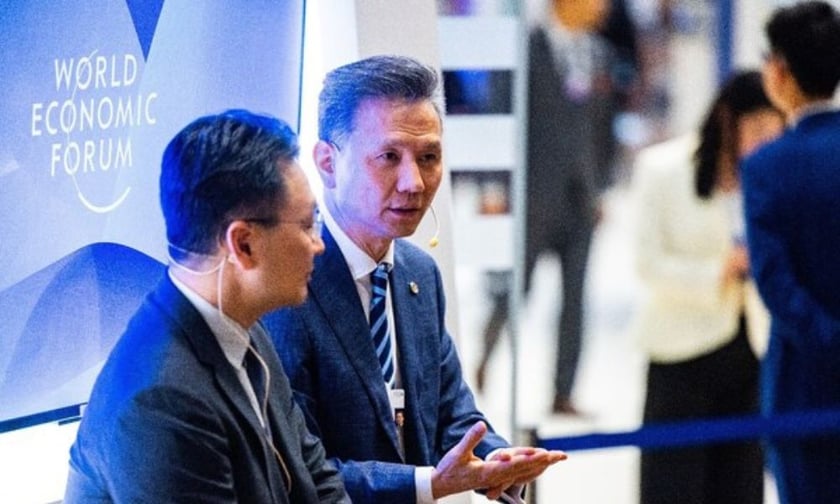

Michael Guo, co-CEO of Ping An Insurance (Group) Company of China Ltd, has highlighted significant business opportunities related to China’s aging population.
Speaking at the Annual Meeting of the New Champions 2024, also known as “Summer Davos,” Guo (pictured, right) pointed out the low awareness of financial planning for senior care and the fragmented nature of senior care services in the Chinese market.
He said Ping An – which recently topped China’s insurance industry in Forbes’ 2024 Global 2000 Ranking – is taking a proactive approach by creating an “integrated finance + health and senior care” system, which includes professional financial advisory, family doctor, and senior care concierge services.
In his speech, Guo emphasised the economic challenges China faces compared to developed countries when they encountered aging populations.
He noted that China entered the aging society phase in 1999 with a GDP per capita of $1,000, significantly lower than the $10,000 GDP per capita in Europe and the US during similar demographic shifts. This economic gap presents challenges for China, including a low retirement replacement ratio and insufficient awareness of the importance of financial planning for senior care.
Guo said he predicts people will start prioritising pensions and financial planning earlier as life expectancy increases.
“The demand for capital preservation and appreciation, with the goal of building a ‘personal pension reserve’ will become the core demand of wealth management,” he said.
China’s insurance industry recognises the market opportunities in wealth management for seniors and is working on creating “finance + senior care” products. However, Guo noted that current products are too generic and need to be part of a comprehensive solution that addresses the specific needs of seniors at different life stages.
For instance, healthy seniors might prioritise social activities, travel, and hobbies, while those with chronic illnesses require disease management and disability care services.
Guo acknowledged that China’s senior care and healthcare services sector faces significant challenges, including:
Currently, 90% of seniors in China prefer home-based care. Guo said Ping An’s services in this area include an online diagnostic platform from Ping An Health, offering 24/7 treatment and consultation services. The company has consolidated extensive offline healthcare resources, including top hospital coverage, a network of doctors and pharmacies, and a wide range of in-home care services.
Guo emphasised the importance of technology in Ping An’s senior care strategy, highlighting the use of artificial intelligence (AI) in home-based senior care. AI supports customer interactions and enhances the efficiency of homecare workers and nurses.
The company also leverages its extensive healthcare database, sourced from public health agencies, for applications in health insurance underwriting, claims, and providing users with information on diseases, drugs, hospitals, and doctors.
“The entire financial insurance industry can leverage its own financial data and combine it with the senior care industry to accumulate data and continue to explore the empowering and enhancing the role of data and technology,” Guo said.
